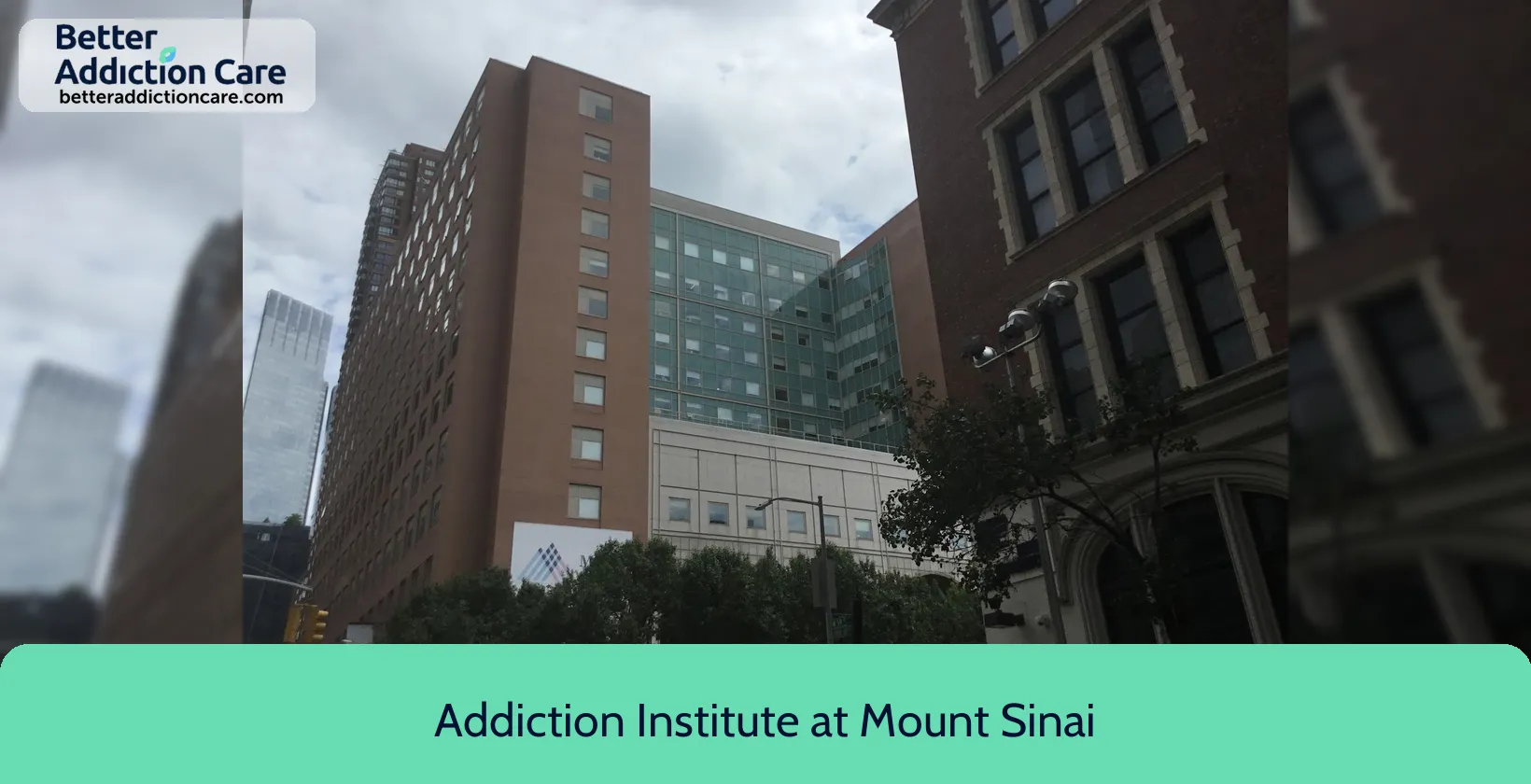Addiction Institute at Mount Sinai West
Overview
Addiction Institute at Mount Sinai West is a substance abuse treatment center for people seeking treatment near New York County. As part of their treatment modalities for recovery, Addiction Institute at Mount Sinai West provides cognitive behavioral therapy, substance use disorder counseling, and trauma-related counseling during treatment. Addiction Institute at Mount Sinai West is located in New York City, New York, accepting cash or self-payment for treatment.
Addiction Institute at Mount Sinai West at a Glance
Payment Options
- Cash or self-payment
- Medicaid
- Medicare
- State-financed health insurance plan other than Medicaid
- Private health insurance
Assessments
- Screening for tobacco use
- Comprehensive mental health assessment
- Comprehensive substance use assessment
- Screening for mental disorders
- Screening for substance use
Age Groups
- Children/adolescents
- Seniors
Operation
- Private non-profit organization
Highlights About Addiction Institute at Mount Sinai West
7.28/10
With an overall rating of 7.28/10, this facility has following balanced range of services. Alcohol Rehabilitation: 8.07/10, Drug Rehab and Detox: 7.85/10, Insurance and Payments: 6.00/10, Treatment Options: 7.21/10.-
Alcohol Rehabilitation 8.07
-
Drug Rehab and Detox 7.85
-
Treatment Options 7.21
-
Insurance and Payments 6.00
Accreditations
State department of health:

Government agencies issue State Licenses, which grant rehabilitation organizations permission to conduct their operations lawfully within specific geographic regions. Licenses needed to operate are typically determined by the type of rehabilitation program offered by the facility and its physical location.
Hospital licensing authority:
The Hospital Licensing Authority is responsible for granting licenses to healthcare facilities, ensuring that they meet the standards and regulations set by the government. Accreditation is a process of evaluation and recognition by a third-party organization, confirming that the hospital meets specific quality and safety standards.
The Joint Commission:

The Joint Commission, previously known as JCAHO, is a nonprofit organization that accredits rehabilitation organizations and programs. Established in 1951, its mission is to enhance the quality of patient care and showcase excellence in healthcare delivery.
Drug Enforcement Agency (DEA):
DEA accreditation refers to the process by which a law enforcement agency is recognized by the Drug Enforcement Agency (DEA) as having met specific training, operational, and resource requirements necessary to participate in DEA-led drug enforcement efforts. This accreditation allows the agency to perform DEA-related tasks such as conducting investigations, executing federal search warrants, and participating in joint task forces.
Treatment At Addiction Institute at Mount Sinai West
Treatment Conditions
- Alcoholism
- Substance use treatment
Care Levels
- Hospital inpatient/24-hour hospital inpatient
- Hospital inpatient detoxification
- Hospital inpatient treatment
- Aftercare
Treatment Modalities
- Cognitive behavioral therapy
- Substance use disorder counseling
- Trauma-related counseling
- Smoking/vaping/tobacco cessation counseling
- Group counseling
Ancillary Services
Languages
- Sign language services for the deaf and hard of hearing
Additional Services
- Pharmacotherapies administered during treatment
- Discharge Planning
- Breathalyzer or blood alcohol testing
Special Programs
- Clients with co-occurring mental and substance use disorders
- Clients who have experienced trauma
Get Help Now
Common Questions About Addiction Institute at Mount Sinai West
Contact Information
Other Facilities in New York City

7.20

6.65

7.52

7.59

6.88

7.20

6.88

6.96
DISCLAIMER: The facility name, logo and brand are the property and registered trademarks of Casa Washington Heights, and are being used for identification and informational purposes only. Use of these names, logos and brands shall not imply endorsement. BetterAddictionCare.com is not affiliated with or sponsored by Casa Washington Heights.

